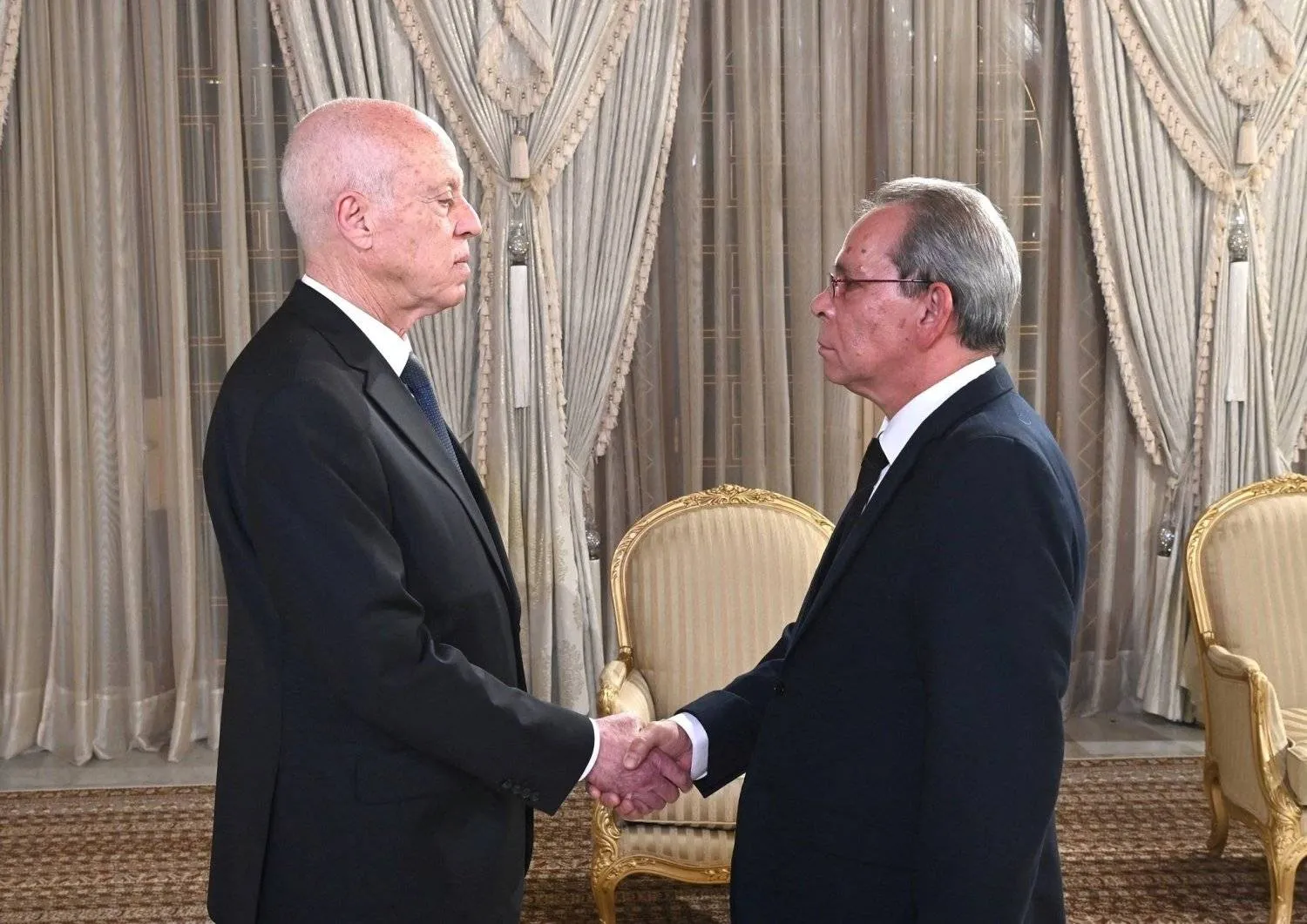Tunisian President Kais Saied ordered the board of the national swimming federation dissolved after the country's flag was covered at a meet in Tunis in response to sanctions by the World Anti-Doping Agency (WADA).
Images on social media showed the flag covered by a red cloth on Friday during the Tunisian Open Masters championship, organized by the national swimming federation at the Rades Olympic pool.
At the end of April, WADA suspended Tunisia's National Anti-Doping Agency (ANAD) for non-compliance with its code. Among the punishments, said WADA, "Tunisia's flag will not be flown at regional, continental or world championships".
On Friday night, a video released by the president's office showed Saied visiting the pool, near Tunis, raising the flag and singing the national anthem, AFP reported.
In a meeting with Prime Minister Ahmed Hachani and other cabinet members, Saied said the country cannot "tolerate this. Tunisia comes before the Olympic Committee and before any other committees".
An apparently agitated Saied called the flag covering "an act of aggression".
In a statement issued overnight Friday-Saturday, the Tunisian youth and sports ministry announced the dissolution of the swimming federation board, as well as the dismissal the ANAD chief and a sports official in Ben Arous governorate near Tunis.
The decision followed "instructions" by President Saied "to take immediate measures... against those responsible for the incident of hiding the national flag", the statement said.
Announcing the ban, WADA said that until Tunisia complies with the revised World Anti-Doping Code introduced in 2021, it would not host major sporting events and is barred from flying its flag at sporting events, including at the upcoming Paris Olympic and Paralympic Games in July and August.
Tunisian authorities have announced amendments meant to bring the country in line with the code, but WADA has yet to lift its sanctions.
Tunisia has one defending Olympic swimming champion, the 2021 400m freestyle gold medallist Ahmed Hafnaoui, but the 21-year-old said on May 8 he was suffering from an unspecified injury and might not compete in Paris.









